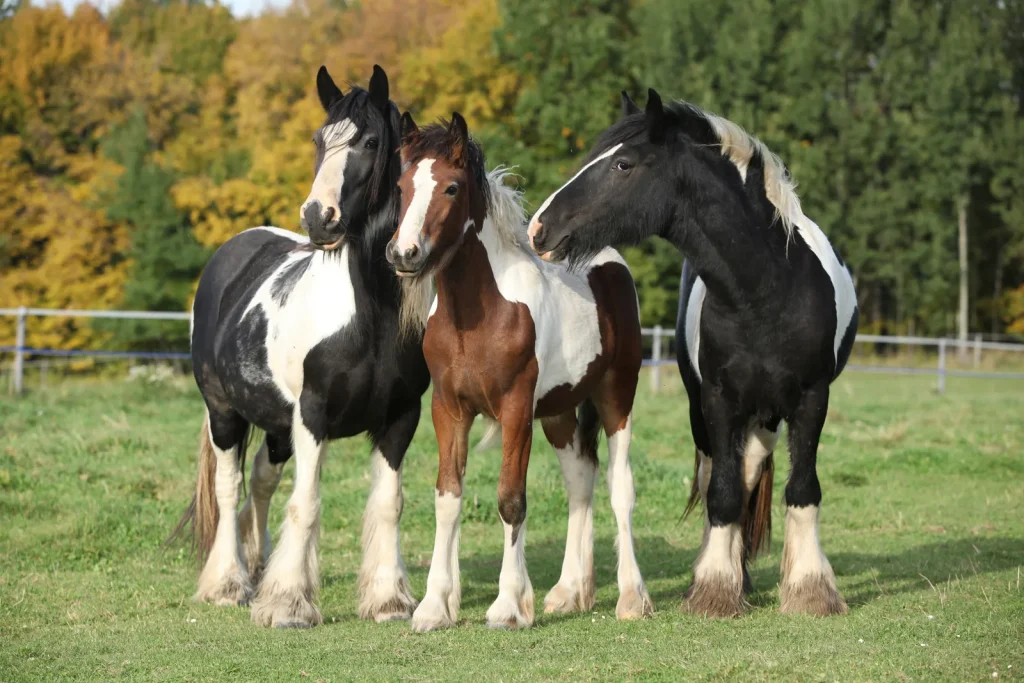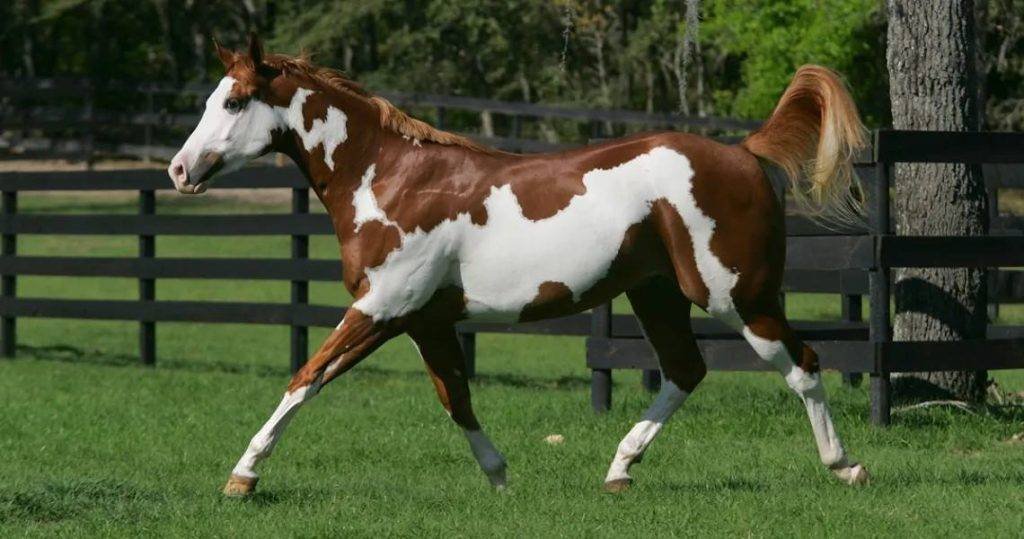When selecting a horse breed suitable for residential or smaller properties, it’s important to consider factors like size, temperament, and maintenance needs.
Owning a horse is a dream for many, but when living in a residential setting or on a smaller property, choosing the right breed is essential. Not all horses are suited for limited spaces, so it’s important to find breeds that can adapt well to smaller environments while still being happy and healthy.
1. Miniature Horses

Miniature horses are a popular choice for those with limited space. As their name suggests, they are much smaller than standard horses, typically standing between 34 to 38 inches tall. Their small size makes them easier to accommodate in a smaller paddock or backyard.
Characteristics: Miniature horses are friendly and affectionate, making them great companions. They are known for their gentle nature and can often be trained to perform tricks or participate in shows.
Care: Despite their size, miniature horses still require regular care. This includes proper feeding, grooming, and medical check-ups. They also need a safe and secure enclosure to protect them from the elements and potential predators.
Benefits: Miniature horses are low-maintenance compared to larger breeds and can provide a lot of joy and companionship. They are also versatile, sometimes used for driving or even therapy work.
2. Shetland Ponies
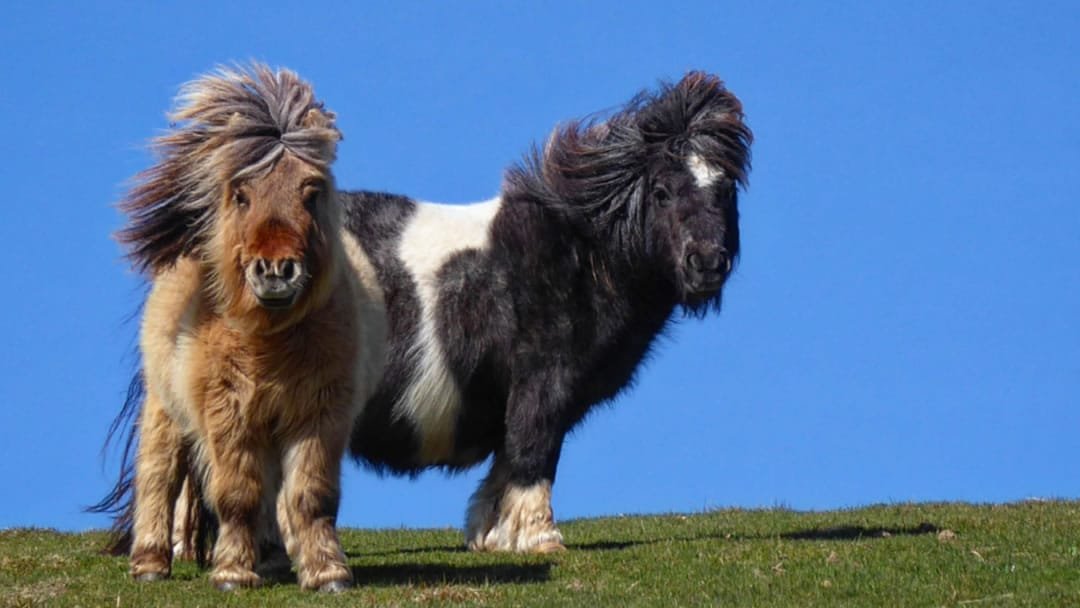
Shetland ponies are another excellent choice for residential settings. They usually stand about 40 inches or shorter, making them compact yet sturdy. Originating from the Shetland Isles, they are known for their strength and resilience.
Characteristics: Shetlands are intelligent and can be quite spirited. They have a friendly and playful demeanor, though they can sometimes be stubborn. This breed is known for its adaptability and can thrive in various living conditions.
Care: Shetland ponies are relatively low-maintenance but do require regular grooming to manage their thick coats. They need a secure fence because they are quite agile and can sometimes find ways to escape.
Benefits: Their strength and durability make them suitable for various activities, from light work to recreational riding. They are also good with children and can serve as excellent family pets.
3. Welsh Ponies
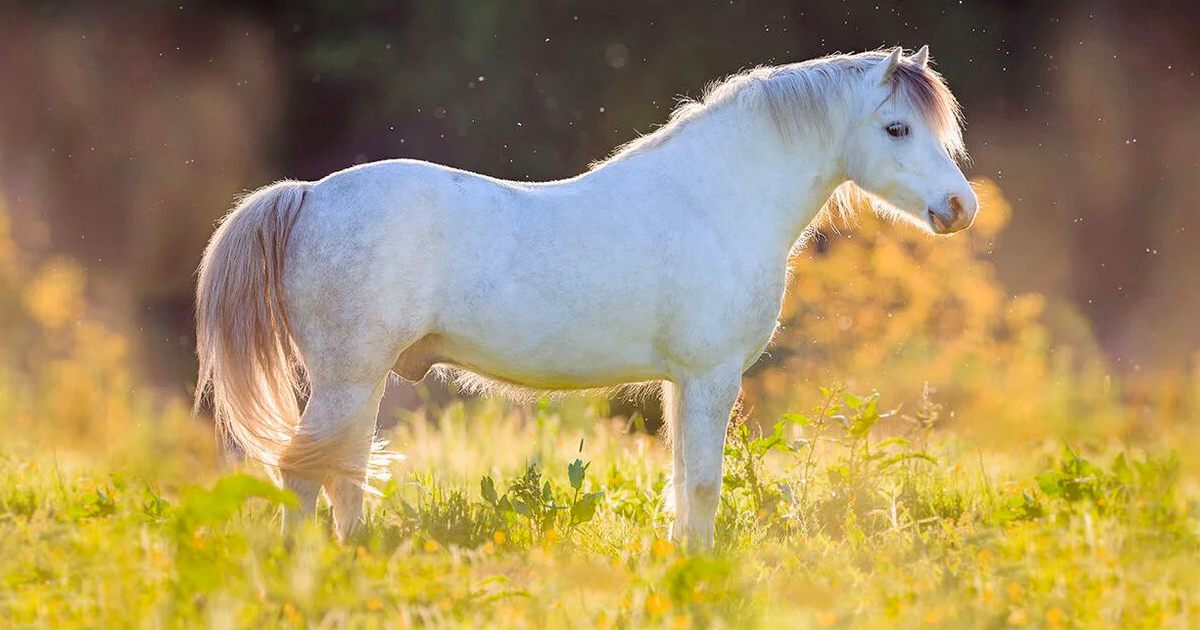
Welsh ponies are another breed that adapts well to smaller properties. They come in several types, with sizes generally ranging from 12 to 14 hands (48 to 56 inches). They are known for their versatility and good temperament.
Characteristics: Welsh ponies are intelligent, energetic, and good-natured. They are often used in competitive events and can excel in a variety of disciplines, including dressage, jumping, and driving.
Care: They need regular exercise and proper nutrition to stay healthy. While they can handle smaller spaces better than larger breeds, they still require a safe and spacious area to move around and graze.
Benefits: Their versatility makes them suitable for different activities, and they generally adapt well to various living conditions. They are also known for their friendly and eager-to-please attitude.
4. Falabella
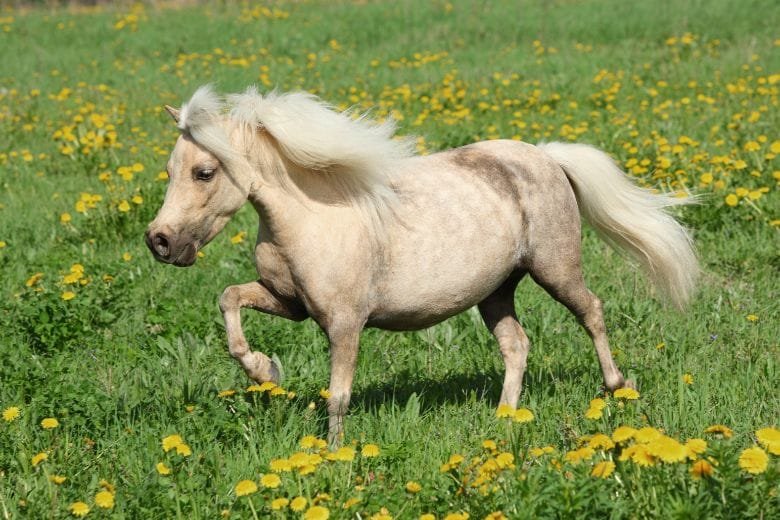
The Falabella is a breed of miniature horse that stands between 28 to 34 inches tall. Originating from Argentina, they are known for their small size and elegant appearance.
Characteristics: Falabellas are calm, gentle, and easy to handle. They have a refined look and are often used as companion animals or in decorative roles.
Care: They require similar care to other miniature horses, including regular grooming and veterinary check-ups. Their small size means they need less space, but they still need a safe and comfortable living environment.
Benefits: Their gentle nature and beautiful appearance make them great for families and as companions. They also require less food and space than larger breeds.
5. American Miniature Horse

The American Miniature Horse is a popular breed for residential settings due to its manageable size, which is up to 34 inches tall. This breed is known for its friendly disposition and versatility.
Characteristics: These horses are known for their sweet and easygoing nature. They are often used in various roles, including therapy animals, and can be quite responsive to training.
Care: Like other miniature breeds, they need proper care, including regular grooming, feeding, and medical attention. They also require a safe and secure living space.
Benefits: American Miniature Horses are low-maintenance and adapt well to smaller living environments. They make excellent companions and can fit into a variety of family settings.

